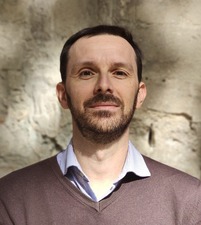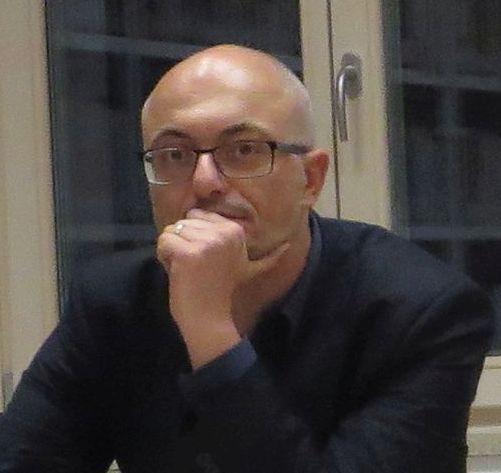Studying at the University of Verona
Here you can find information on the organisational aspects of the Programme, lecture timetables, learning activities and useful contact details for your time at the University, from enrolment to graduation.
Academic calendar
The academic calendar shows the deadlines and scheduled events that are relevant to students, teaching and technical-administrative staff of the University. Public holidays and University closures are also indicated. The academic year normally begins on 1 October each year and ends on 30 September of the following year.
Course calendar
The Academic Calendar sets out the degree programme lecture and exam timetables, as well as the relevant university closure dates..
| Period | From | To |
|---|---|---|
| 1° semestre Trento | Sep 19, 2022 | Dec 22, 2022 |
| 1 A | Sep 26, 2022 | Nov 5, 2022 |
| 1 B | Nov 14, 2022 | Dec 22, 2022 |
| 2 A | Feb 13, 2023 | Apr 6, 2023 |
| 2° semestre Trento | Feb 20, 2023 | Jun 1, 2023 |
| 2 B | Apr 12, 2023 | May 27, 2023 |
| Session | From | To |
|---|---|---|
| Sessione invernale | Jan 9, 2023 | Feb 11, 2023 |
| Sessione estiva | Jun 5, 2023 | Jul 29, 2023 |
| Sessione autunnale | Aug 28, 2023 | Sep 23, 2023 |
| Session | From | To |
|---|---|---|
| Sessione straordinaria (a.a. 2021/22) | Mar 31, 2023 | Apr 6, 2023 |
| Sessione estiva | Jul 10, 2023 | Jul 15, 2023 |
| Sessione autunnale | Nov 6, 2023 | Nov 11, 2023 |
| Sessione straordinaria | Apr 2, 2024 | Apr 8, 2024 |
| Period | From | To |
|---|---|---|
| Chiusura edifici | Oct 31, 2022 | Oct 31, 2022 |
| Festa di Ognissanti | Nov 1, 2022 | Nov 1, 2022 |
| Festa dell'Immacolata | Dec 8, 2022 | Dec 8, 2022 |
| Chiusura edifici | Dec 9, 2022 | Dec 10, 2022 |
| Vacanze di Natale | Dec 23, 2022 | Jan 7, 2023 |
| Vacanze di Pasqua | Apr 7, 2023 | Apr 10, 2023 |
| Festa della Liberazione | Apr 25, 2023 | Apr 25, 2023 |
| Festa del lavoro | May 1, 2023 | May 1, 2023 |
| Festa del Santo Patrono | May 21, 2023 | May 21, 2023 |
| Festa della Repubblica | Jun 2, 2023 | Jun 2, 2023 |
| Chiusura estiva | Aug 13, 2023 | Aug 19, 2023 |
Exam calendar
Exam dates and rounds are managed by the relevant Culture and Civilisation Teaching and Student Services Unit.
To view all the exam sessions available, please use the Exam dashboard on ESSE3.
If you forgot your login details or have problems logging in, please contact the relevant IT HelpDesk, or check the login details recovery web page.
Should you have any doubts or questions, please check the Enrollment FAQs
Academic staff
 giovanni.bernardini@univr.it
giovanni.bernardini@univr.it
 giovanni.ciappelli@univr.it
giovanni.ciappelli@univr.it
 giorgia.proietti@unitn.it
giorgia.proietti@unitn.it
Study Plan
The Study Plan includes all modules, teaching and learning activities that each student will need to undertake during their time at the University.
Please select your Study Plan based on your enrollment year.
1° Year
| Modules | Credits | TAF | SSD |
|---|
Digital tools for historical research
Early Modern History I - LM (Historical Anthropology)
Contemporary History I - LM
Medieval History, History of Christianity and Churches
History of Medieval Art I
Medieval Latin Literature II
History of Science and Technology - LM
History of Political Institutions II
History of Political Thought
2° Year activated in the A.Y. 2023/2024
| Modules | Credits | TAF | SSD |
|---|
| Modules | Credits | TAF | SSD |
|---|
Digital tools for historical research
Early Modern History I - LM (Historical Anthropology)
Contemporary History I - LM
Medieval History, History of Christianity and Churches
History of Medieval Art I
Medieval Latin Literature II
History of Science and Technology - LM
History of Political Institutions II
History of Political Thought
| Modules | Credits | TAF | SSD |
|---|
| Modules | Credits | TAF | SSD |
|---|
Legend | Type of training activity (TTA)
TAF (Type of Educational Activity) All courses and activities are classified into different types of educational activities, indicated by a letter.
History of Political Institutions I (2023/2024)
Teaching code
4S003236
Teacher
Coordinator
Credits
6
Language
Italian
Scientific Disciplinary Sector (SSD)
SPS/03 - HISTORY OF POLITICAL INSTITUTIONS
Period
2° semestre lezioni Trento dal Feb 19, 2024 al May 31, 2024.
Courses Single
Not Authorized
Learning objectives
Acquisition of particular skills and abilities in dealing with vocabulary and specific problems in the composition, functioning and role of modern political institutions (eighteenth-twentieth century).
Prerequisites and basic notions
none
Program
Contents
The course, entitled: Constitutional history of the German world in the long nineteenth century, takes place at the headquarters of Trento and is divided into lectures during which it will be distributed, as needed, educational materials such as geographical maps, constitutional and / or legislative texts to aid in understanding and exemplifying the issues addressed.
It is not presupposed by the student any basic knowledge and / or skill (the use of technical-specialist concepts will be adequately introduced) but only the propensity to look at the history of the German states, in particular of Prussia and of the Austrian Empire, from the 'special' point of view of political and institutional history.
The contents of the course will be:
1. The main features of the Austrian and German absolute State until the foundation, by resolution of the Congress of Vienna, of the German Confederation and beyond (1800-1848).
2. The constitutionalization of the German-southern States in the Vormärz, and the main historical-political-constitutional problems that were on the political agenda before the belated transition to the constitutional state in both Austria and Germany in 1848.
3. The start of the constitutionalization process of Prussia and Austria in 1848.
4. The difficulties encountered by the process of constitutionalization, especially in Austria but also in Germany, during the 1950s.
5. The parliamentary-representative institutions introduced in Austria and Prussia through the new constitutional papers and their role within the overall political system, especially in relation to the Monarch and his Government.
6. Lines of affirmation and evolution of the modern parliamentary-representative system in Prussia / Germany and in the Austrian Empire until the First World War.
Bibliography
Didactic methods
.
Learning assessment procedures
The assessment of learning will take place through an oral exam to verify knowledge of 3 texts:
1. text referred in point a.
2. a text chosen from b. and c.
3. 1 text chosen among d. and e.
Reference texts:
a. Anna Gianna Manca: Monarchy in the constitutional history of the long nineteenth century: Italy, Germany, Austria. In: Journal of constitutional history - vol. 36/II, 2018, pp. 85-107;
b. Anna Gianna Manca, Constitution and administration of the Prussian monarchy (1848-1870), Bologna, Il Mulino, 2016 (from the beginning to p. 87);
c. Anna Gianna Manca, The parliament of the Second German Empire between autonomy and systemic incardination, in D. Novarese, E. Pelleriti, V. Calabrò, P. De Salvo, C. Trimarchi (a cura di), Oltre l'Università. Storia, istituzioni, diritto e società, studi per Andrea Romano, Bologna: Il Mulino, 2020, p. 207-222;
d. Brigitte Mazohl, Constitutions and constituents in the Europe of 1848-49, the case of Austria and Hungary, in PL Ballini (ed.), 1848-1849. Constituents and Constitutions. Daniele Manin and the republic of Venice, Venice 2002, pp. 15-30;
e. Brigitte Mazohl, The Austrian Empire and Italian unity, in «Lombard Historical Archive», vol. XVIII of the twelfth series, CXXXIX, 2013, pp. 93-119; ………..
Evaluation criteria
Expected learning outcomes and educational goals
The course aims to bring the student closer to the political-constitutional history of the German world of the long nineteenth century (1800-1918). The central object of the course will be
1. the late and contrasted transition from the absolute state to the constitutional one in the 2 main states of the German Confederation (1815-1866), namely Austria and Prussia,
2. the introduction here for the first time of the modern parliamentary-representative institutions, that is at least partially freely elected.
At the end of the course the student will be able to:
1. to know in broad terms times and circumstances of the transition from the cetual / absolute, or anyway pre-constitutional state, to the constitutional one in the Austrian Empire and in Prussia / Germany,
2. to outline the period of introduction and the distinctive characteristics of the monarchical-constitutional form of government,
3. to frame the relationship established within the new form of monarchical-constitutional government between (monarchical) government on the one hand and parliament on the other,
4. to distinguish historically between a liberal state and one at least formally democratic, ie between different types and models of the modern state, as well as between two different forms of political government, ie between a at least formally constitutional monarchy and a solid parliamentary monarchy.
The course intends to bring the student closer to the political-constitutional history of the German world during the long nineteenth century, with particular attention to the late and contrasted transition process from the absolute regime to the constitutional one of the main states of the German Confederation (1815-1866), namely Austria and Prussia. At the end of the course the student will be able to: - know about the modalities, times and circumstances of the transition from the absolute (or cetual) regime to the constitutional regime, and to illustrate the new relationship established within the constitutional state between (monarchical) government and representative institutions.
Criteria for the composition of the final grade
knowledge of the program and critical skills
Exam language
italiano
Type D and Type F activities
COMPETENZE TRASVERSALI
| years | Modules | TAF | Teacher |
|---|---|---|---|
| 1° 2° | Fine della "globalizzazione"? Dialoghi sul mondo che cambia | D |
Giovanni Bernardini
(Coordinator)
|
| 1° 2° | Introduction to reading archival documents | D |
Mariaclara Rossi
(Coordinator)
|
| 1° 2° | Reading the Middle Ages. Authors, Meetings, Debates | D |
Marco Stoffella
(Coordinator)
|
| years | Modules | TAF | Teacher |
|---|---|---|---|
| 1° 2° | Fine della "globalizzazione"? Dialoghi sul mondo che cambia | D |
Giovanni Bernardini
(Coordinator)
|
| 1° 2° | Introduction to reading archival documents | D |
Mariaclara Rossi
(Coordinator)
|
| 1° 2° | Reading the Middle Ages. Authors, Meetings, Debates | D |
Marco Stoffella
(Coordinator)
|
Career prospects
Module/Programme news
News for students
There you will find information, resources and services useful during your time at the University (Student’s exam record, your study plan on ESSE3, Distance Learning courses, university email account, office forms, administrative procedures, etc.). You can log into MyUnivr with your GIA login details: only in this way will you be able to receive notification of all the notices from your teachers and your secretariat via email and soon also via the Univr app.
Linguistic training CLA
Double degree
The University of Verona, through a network of agreements with foreign universities, offers international courses that enable students to gain a Double/Joint degree at the time of graduation. Indeed, students enrolled in a Double/Joint degree programme will be able to obtain both the degree of the University of Verona and the degree issued by the Partner University abroad - where they are expected to attend part of the programme -, in the time it normally takes to gain a common Master’s degree. The institutions concerned shall ensure that both degrees are recognised in the two countries.
Places on these programmes are limited, and admissions and any applicable grants are subject to applicants being selected in a specific Call for applications.
The latest Call for applications for Double/Joint Degrees at the University of Verona is available now!
Graduation
List of theses and work experience proposals
| theses proposals | Research area |
|---|---|
| Ambiti di tesi | Art & Architecture - Art & Architecture |
Student mentoring
Student login and resources
Manifesto degli studi
Manifesto degli studi del CdLM interateneo in Scienze storiche
Documents
| Title | Info File |
|---|---|
|
|
pdf, it, 466 KB, 26/02/24 |
|
|
pdf, it, 456 KB, 26/02/24 |

 +39 045802 8351
+39 045802 8351


























